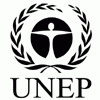Community / Land projects / Circular Economy Regional Initiative (CERI)
Circular Economy Regional Initiative (CERI)

€11698944.15
09/21 - 09/21
Завершено
This project is part of
Implementing Organisations
Donors
Data Providers
Objectives
The Circular Economy Regional Initiative project will address specific barriers to transitioning to circular economy in the Western Balkans and Turkey by catalysing the scale up of circular economy technologies and processes, as well as adoption of circular strategies and business practices.
Other
Note: Disbursement data provided is cumulative and covers disbursement made by the project Agency.
Target Groups
1. The Project will deliver a range of social and environmental benefits associated with shifting to a circular economy from a linear economy such as:· Reduced materials, energy and water usage. · Decreased demand for new landfills resulting in improvement of land management practices, due to diversion of waste from landfills. Reduced leakages of plastics waste into the water bodies due to reduced landfilling of plastics. · Diversion of waste (especially plastics and chemicals) from landfills will indirectly contribute to increasing the area of landscapes under improved practices.· Reduced costs for companies due to improved production process and circular business models resulting in less dependence on virgin materials.· Improved reputation of the participating companies, which can result in their better positioning in the market.· Capacity building in the participating countries in terms of local know-how and implementation of international best practices resulting from the technical assistance provided under Component 2: Technical assistance for identification of circular economy technologies and processes, and strategy development.· Improved resilience concerning the economic crisis response to the COVID19 outbreak. Some economic effects of the outbreak include significantly disrupted value chains and logistics operations. Shifting to circular economy reduces overreliance on extraction of raw materials and mitigates exposure to supply chain risks to some extent. 2. The Project is anticipated to produce, where possible, other co-benefits consistent with the EBRD’s mandate to support transition. This includes acknowledging gender differences and improvements starting with tracking Project participation by gender. Collection of this type of social data provides input for transition towards equal opportunity. 3. The Project is anticipated to produce, where possible, other co-benefits consistent with the EBRD’s mandate to support transition. This includes acknowledging gender differences and improvements starting with tracking Project participation by gender. Collection of this type of social data provides input for transition towards equal opportunity.




